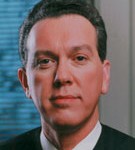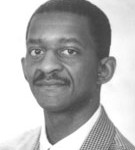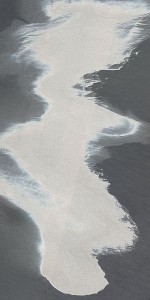Investiture of Hon. James A. Wynn, Jr.

It was my great pleasure to attend the investiture of Jim Wynn (L’79) as a judge on the United States Court of Appeals for the Fourth Circuit. The ceremony at the federal courthouse in Raleigh, North Carolina, drew an enormous crowd, well into the hundreds, requiring that the large majority of those in attendance view the event in various courtrooms in the building through a video feed.
It was no great surprise that Judge Wynn was nominated and confirmed as a judge of the United States Court of Appeals. He had distinguished himself as an undergraduate at the University of North Carolina at Chapel Hill, as a law student at Marquette (during my days as assistant dean), as an officer in the U.S. Navy Judge Advocate General’s Corps, as a lawyer in private practice, as a leader of the American Bar Association and the Uniform Law Commission, and as an appellate judge on the North Carolina Court of Appeals and North Carolina Supreme Court. Not a bad record for a fellow who grew up in a small farming community in the Coastal Plains region of North Carolina.
Judge Wynn was characteristically gracious to those of us from Marquette who were present. Dean Joseph Kearney was included among the speakers, and not only were his warm congratulations and greetings from Marquette well received, but his punch lines got especially good laughs. (Example: “But I am presumptuous enough to bring greetings from the past. For I have brought Judge Wynn’s student file with me—I would say that I do this by the power vested in me as dean, but I may be about to violate the FERPA law concerning educational privacy.”)
Seventh Circuit Judge Diane Sykes (L’84) was seated at the front of the courtroom, just in front of the presiding Fourth Circuit bench, every one of whose members was present for Judge Wynn’s investiture—the first time in anyone’s memory that there was a full turnout of the court for such an event. Judge Wynn’s classmates Joseph Yana, John Rothstein, and Dan Dennehy also had prime seats in the ceremonial courtroom, as did I, rubbing shoulders with the Wynn family and with leaders of the North Carolina bench and bar. Marquette trustee Chuck Svoboda, himself a North Carolinian, was also in attendance, as were Reuben Daniels (L’78) and Florence Johnson Raines (L’91).
It is always a pleasure and satisfaction to see a Marquette lawyer achieve impressive professional goals. The pleasure is especially great in the case of Jim Wynn, for the qualities of excellence, faith, leadership, and service etched into the hearth in the Aitken Reading Room are so clearly etched into Jim’s character as well.



